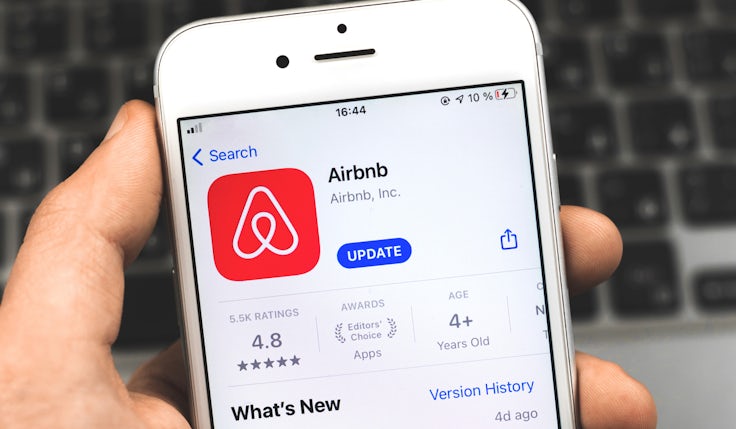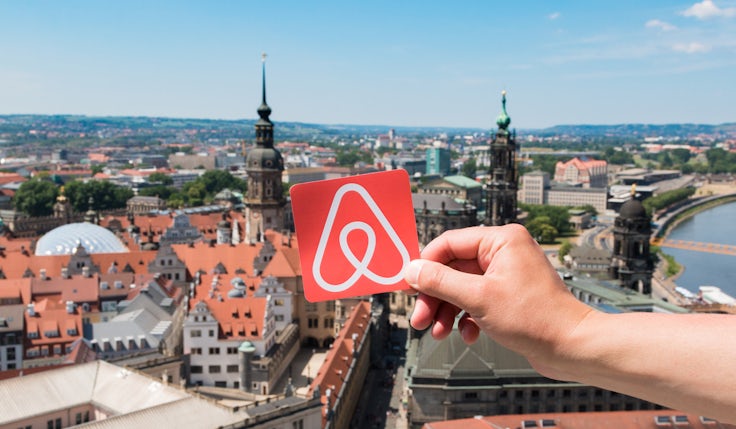Airbnb hails ‘efficient’ marketing strategy as it posts record profits
CFO Dave Stephenson claims the decision to “radically” adjust marketing expenditure is a key factor in the brand’s rising profitability.
 Airbnb’s top executives have praised its “efficient” approach to marketing spend and focus on brand building over performance, as the business reports its most profitable quarter ever.
Airbnb’s top executives have praised its “efficient” approach to marketing spend and focus on brand building over performance, as the business reports its most profitable quarter ever.
The online holiday rental firm reached $1.2bn (£1.04bn) in net income over the third quarter of its fiscal year, a nearly $400m (£348m) improvement from Q3 2021.
The company has also posted its highest quarterly adjusted EBITDA ever at $1.5bn (£1.31bn), a 32% year on year increase, which the brand says demonstrates “the continued strength of the business and discipline in managing” the cost structure.
On a call with investors yesterday evening (1 November), CFO Dave Stephenson highlighted Airbnb’s decision to “radically” adjust its marketing expenditures to be “substantially lower” as a key factor in the business’s rising profitability.
In 2019, Airbnb shifted its marketing strategy to be more brand driven and PR led, and less dependent on search engine and performance marketing. The brand said it now looks at marketing as a tool for “education”, rather than a tool to “buy customers”.
“We’re really pleased with our approach to the marketing strategy that we’ve had,” Stephenson said. “Our brand marketing results are delivering excellent results overall with a strong rate of return.”
We’re not a business organisation where you’d have four marketing departments. We have one functional organisation.
Brian Chesky, Airbnb
Indeed, 90% of the platform’s traffic remains direct or unpaid, he said, “which is driving a great return on investment for new active bookers”.
The CFO added that Airbnb’s brand advertising campaign has been “so successful” the business will be expanding it into further countries over the next year.
Speaking alongside Stephenson, CEO and co-founder Brian Chesky claimed Airbnb now spends “a lot less” on marketing than its competitors and is “pretty efficient” with its investment.
This efficient spend, combined with a “lean” organisational structure, is positioning Airbnb well to navigate the challenges of the macroeconomic picture, he added.
“When the pandemic hit, we lost 80% of our business and we completely changed our cost structure. And out of that crisis, we made a decision. And the decision we made is we weren’t going to wait for another crisis, another weakened economy or a recession to change how we invest or run the company. So we were going to be lean regardless of the economy,” Chesky explained.
“We are really embracing being a lean organisation, which is partly our functional structure. We’re not a business organisation where you’d have four marketing departments. We have one functional organisation and so that allows us to be quite a bit leaner.”
Airbnb CFO: We were right to shift spend from performance to brand-building
Advertising spend for the year as a whole will be “relatively flat” compared to 2021, Stephenson added, with similar marketing as a percentage of revenue is expected in 2023. There are currently no plans to cut marketing spend in response to the economic crisis.
“We’ve already hit this new lower overall rate. And what we’ve actually seen is, to the extent that we’re keeping it flat even as we grow, it’s because we’re actually seeing such success that we’re wanting to be able to invest in other countries,” said Stephenson,
“Certainly, we can moderate that over time, but we’re already so low that I wouldn’t anticipate us dropping it dramatically in face of substantial headwinds over growth. But we can flex it with the revenue within a reasonably a few hundred basis points here and there.”






Comments